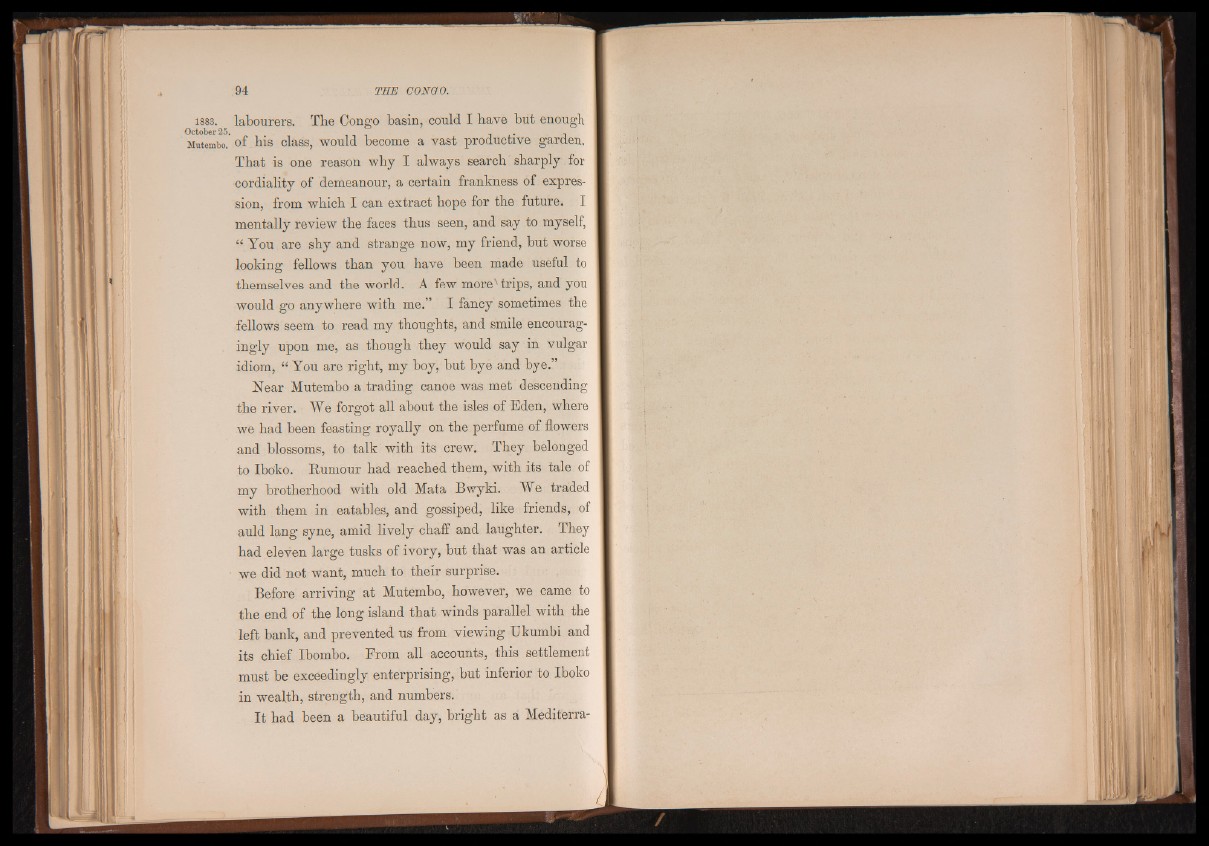
94 THE CONGO.
1883.
October 25.
Mutembo.
labourers. The Congo basin, could I bave but enough
of bis class, would become a vast productive garden.
Tbat is one reason wby I always search sbarply for
cordiality of demeanour, a certain frankness of expression,
from wbicb I can extract bope for tbe future. I
mentally review tbe faces tbus seen, and say to myself,
“ You are sby and strange now, my friend, but worse
looking fellows tban you have been made useful to
themselves and the world. A few morex trips, and you
would go anywhere with me.” I fancy sometimes the
fellows seem to read my thoughts, and smile encouragingly
upon me, as though they would say in vulgar
idiom, “ You are right, my boy, but bye and bye.”
Near Mutembo a trading canoe was met descending
the river. We forgot all about the isles of Eden, where
we had been feasting royally on the perfume of flowers
and blossoms, to talk with its crew. They belonged
to Iboko. Eumour had reached them, with its tale of
my brotherhood with old Mata Bwyki. We traded
with them in eatables, and gossiped, like friends, of
auld lang syne, amid lively chaff and laughter. They
had eleven large tusks of ivory, but that was an article
we did not want, much to their surprise.
Before arriving at Mutembo, however, we came to
the end of the long island that winds parallel with the
left bank, and prevented us from viewing Ukumbi and
its chief Ibombo. From all accounts, this settlement
must be exceedingly enterprising, but inferior to Iboko
in wealth, strength, and numbers.
I t had been a beautiful day, bright as a Mediterra-
/